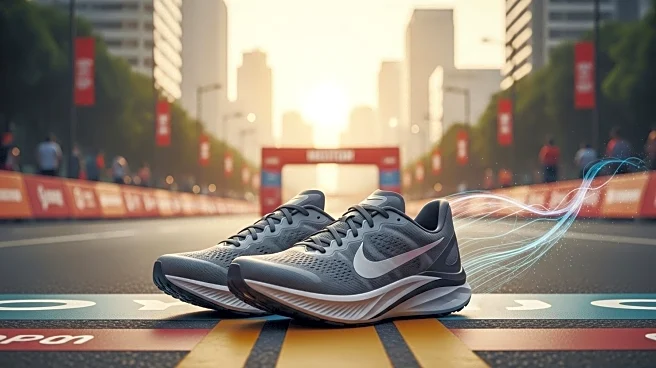What's Happening?
Eliud Kipchoge, renowned Kenyan marathon runner, is focusing on inspiring people to participate in marathons, emphasizing the mental and physical challenges involved. Despite his age and waning competitive edge, Kipchoge remains committed to promoting the sport he loves. He recently participated in the Sydney Marathon, finishing ninth, and used the event to encourage Australians to embrace running. Kipchoge's career includes 14 marathon victories, two Olympic gold medals, and setting world records, including being the only person to run a marathon in under two hours. His presence in Sydney was not just about competing but also about motivating others to experience the transformative power of marathon running.
Why It's Important?
Kipchoge's advocacy for marathon running highlights the sport's potential to foster community and personal growth. By encouraging participation, he aims to make running more accessible and appealing, potentially increasing public interest and involvement in marathons. This could lead to greater health benefits for individuals and communities, as running is known for improving cardiovascular health and mental well-being. Kipchoge's influence may also inspire future generations of athletes, contributing to the sport's evolution and popularity. His focus on humanity and hope through running underscores the broader societal impact of sports as a unifying and empowering activity.
What's Next?
Kipchoge plans to continue promoting marathon running globally, with aspirations to expand participation in events like the Sydney Marathon. He aims to return to Sydney and possibly compete in the New York Marathon, the only major race he has yet to run. Kipchoge's ongoing efforts to inspire runners may lead to increased marathon participation worldwide, fostering a culture of health and fitness. His advocacy could also influence the development of running technologies, as he endorses innovations like biowearables and glucose monitors that enhance training and performance.
Beyond the Headlines
Kipchoge's mission to inspire marathon participation reflects broader themes of resilience and personal transformation. His emphasis on the emotional and physical journey of running a marathon highlights the sport's ability to challenge and change individuals. This narrative aligns with cultural values of perseverance and self-improvement, potentially influencing how marathons are perceived and valued in society. Kipchoge's approach also raises ethical considerations about accessibility and inclusivity in sports, encouraging efforts to make running events more welcoming to diverse participants.









